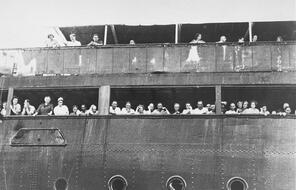Resource Library
Find compelling classroom resources, learn new teaching methods, meet standards, and make a difference in the lives of your students.
We are grateful to The Hammer Family Foundation for supporting the development of our on-demand learning and teaching resources.

Introducing Our US History Curriculum Collection
Draw from this flexible curriculum collection as you plan any middle or high school US history course. Featuring units, C3-style inquiries, and case studies, the collection will help you explore themes of democracy and freedom with your students throughout the year.
3350 Results
Targeting Poland
Get insight into the German public opinion on Hitler's invasion of Poland in 1939 with these primary source excerpts.
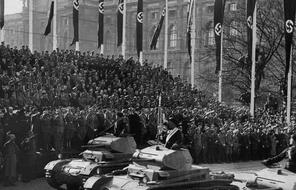
Thoroughly Reprehensible Behavior
Read a report from the disciplinary hearing of a German college student who chose to help his Jewish neighbors after Kristallnacht.

Thoroughly Reprehensible Behavior (en español)
In Spanish, read a report from the disciplinary hearing of a German college student who chose to help his Jewish neighbors after Kristallnacht.

Un comportement parfaitement répréhensible
Lisez le rapport de l’audience disciplinaire d’un étudiant allemand qui a choisi d’aider ses voisins juifs après la Nuit de Cristal.

World Responses to Kristallnacht
Consider how leaders like FDR, clergy members, and ordinary people around the world responded to the news of Kristallnacht.
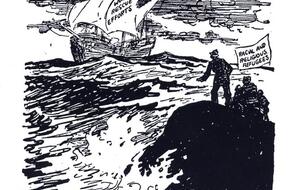
Choices in a Modern World
Get insight into how the Jewish Enlightenment affected Jewish women in this memoir excerpt from Pauline Wengeroff.
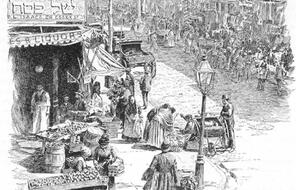
Growing Up with Racism
In a letter to her daughter, Lisa Delpit reflects on how racism has shaped her worldview and her hopes and fears for her child.

Growing Up with Racism (en español)
In a letter to her daughter, Lisa Delpit reflects on how racism has shaped her worldview and her hopes and fears for her child. This reading is in Spanish.

The Impact of Propaganda
Get insight on the ability and limits of propaganda to influence the beliefs, feelings, and actions of those exposed to it.
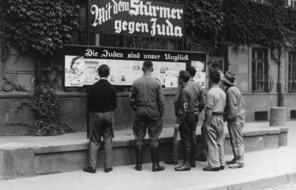
The Impact of Propaganda (en español)
Get insight on the ability and limits of propaganda to influence the beliefs, feelings, and actions of those exposed to it. This resource is in Spanish.

Jewish Refugees from Austria
Examine a 1938 poll that reveals the public opinion in the United States toward the Jewish refugee crisis.
